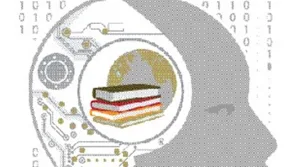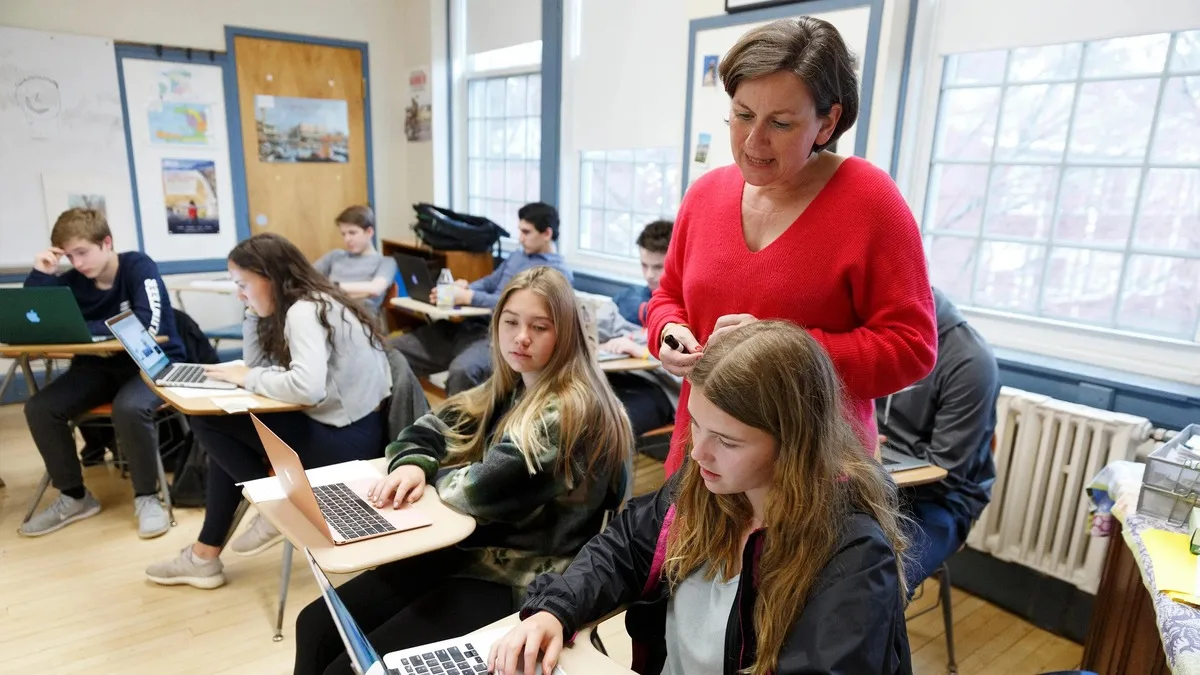Teachers impart AI knowledge to their students in the classroom.

The education sector needs to quickly catch up and adapt to the changing environment. (Getty Images)
Written by Poojan Sahil
January 15, 2023 07:30 IST
The education sector needs to quickly catch up and adapt to the changing environment. The change that is looking at us in the eyes is that, with Artificial Intelligence and Deep Learning-based tools, the skill of just knowing an answer is becoming increasingly less important.
The factory-model school structure, where a teacher gives instructions to numerous students and teaches them to follow those instructions with efficiency, now seems an ancient setup. The skill of memorising information has been something we have stressed on for far too long in the way we teach and learn, but that focus will have to shift now.
We have been teaching our students to be mere “rule followers,” people who follow instructions properly and get a task done efficiently. With AI, this skill runs the risk of turning irrelevant. We cannot compete with a machine when it comes to following instructions and carrying out a task with efficiency and accuracy. Creative thinking is where the focus needs to shift. We should be helping students form their own opinions and perceptions that are individualistic.
An important skill is learning how to ask the right questions or to use an inquiry-based approach. You must have noticed that while doing any research, an important aspect is to know what to search for, what to type into the Google search bar for the best fitting result. With AI, we still need to know what to ask the machine.
We need to reflect if our education system is giving enough scope for this skill to be developed. Are schools equipped with a comfortable student-teacher ratio where each student gets a chance to ask questions and nurture their curiosity? Do we have enough infrastructure and budget allocation to ensure these setups? The culture of asking questions seems to be on the decline in our social fabric too, and that poses a major concern.
Another skill that gives Human Intelligence an upper hand is our ability to adapt to change in circumstances. For example, simply applying tape on the wrong side of the road can cause an autonomous vehicle to swerve into the wrong lane and crash. A human might not even register or react to the tape. This means that we need to focus on learning how to adapt and apply the learnt knowledge rather than finding a direct solution. We do see a shift in assessments with an emphasis on competency-based questions.
With our national curriculum still shying away from allowing secondary school students to use calculators, we are not prepared to let our students be independent learners who are not just being trained to know the answer can create their own paths.
The fear with technology was often that it would replace humans at multiple jobs and leave a huge working population helpless. However, we cannot deny how the rise in technology has also created a different set of jobs that works with and for technological development. Ignoring the inevitability of technology in our lives now is nearly impossible. AI might be doing a lot of work for us in the future, but we need to know that it is a tool that we use. We should be making ourselves and the future generations empowered to efficiently use these and also to be able to create similar technology. Another important role we need to play is to be able to correct the biases that data can create and uphold the ethics of any tool. An AI tool might not have the social-emotional context of all situations, which we need to keep enhancing.
This discussion raises a deeper question: what makes us humans? The answer to this will be our strategy to remain relevant in a world full of AI. These human elements are what we need to focus on while designing our education plans for the future. Education cannot be just about gathering cognitive knowledge, but has to include the entanglement of our learnt knowledge with social, emotional and ethical implications. In an extremely competitive ecosystem with coaching centres creating a factory of “efficient computational machines”, our view about education and the purpose it serves has become extremely myopic.
In conclusion, a checkpoint for AI in education— — a location where we are prepared for ChatGPT and other such tools — seems quite far. However, we can make a start by humanising our concepts across all subjects. Remember, we are humans and should not try to transform into machines. Machines are definitely going to be better at that than us.
The writer is an educator who specialises in mathematics
© The Indian Express (P) Ltd
